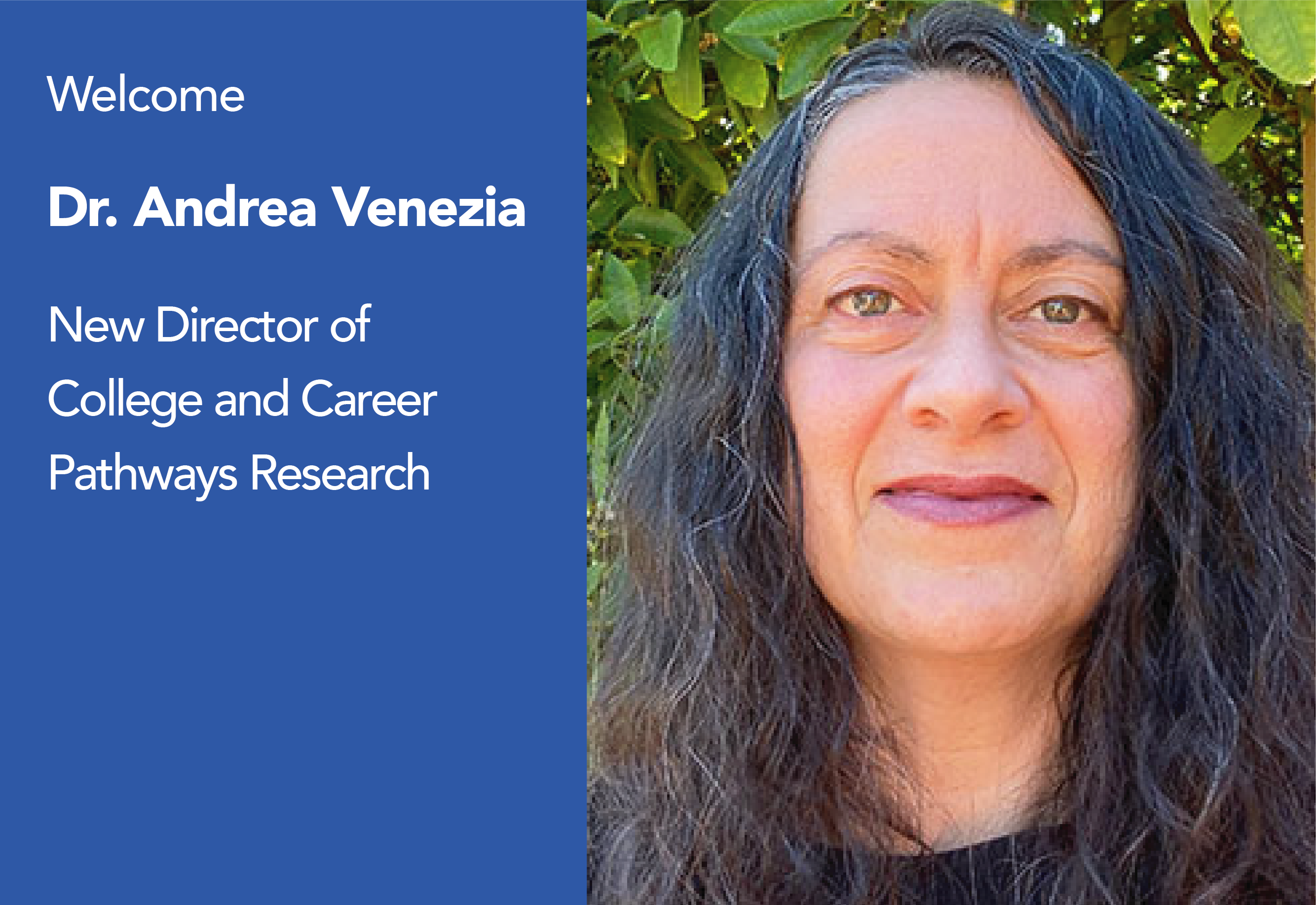SRI Education is working to fill the gap in evidence on changes in instruction from the use of open educational resources (OER) in community colleges. Building on the prior study of the OER Degree Initiative, we are investigating how the use of OER can enable what are sometimes called “open educational practices” (OEP) and equity-focused instruction in community college courses.
College instructors see it all the time. Each semester brings bright students who easily grasp new ideas, but may struggle with assignments or studying for exams. These students can excel when explicitly taught skills to manage their own learning, research conducted by Dr. Omar Faison at Virginia State University has found. If students do not have these skills, online courses can be particularly challenging. With more college courses moving online, students need self-directed learning skills more than ever.
Dr. Andrea Venezia joined SRI Education in May as our new director of college and career pathways research, co-leading the program area with Dr. Miya Warner. Most recently, Andrea was a professor of public policy and administration at Sacramento State University and executive director of the Education Insights Center.
The transition from high school to college can be difficult in the best of times, let alone during a global pandemic. Our previous post on Supporting Postsecondary Transitions During COVID-19 offers practical resources for supporting students and families navigating the college application and enrollment process during the pandemic.
SRI’s evaluation of the California Community College Linked Learning Initiative (CCCLLI) addressed implementation issues and institutional and student outcomes of work by three community colleges and partnering K–12 districts to use Linked Learning to improve college transitions and success. The California Community College Linked Learning Initiative (CCCLLI) aimed to increase student success in community college, … Continue reading Evaluation of the California Community College Linked Learning Initiative








